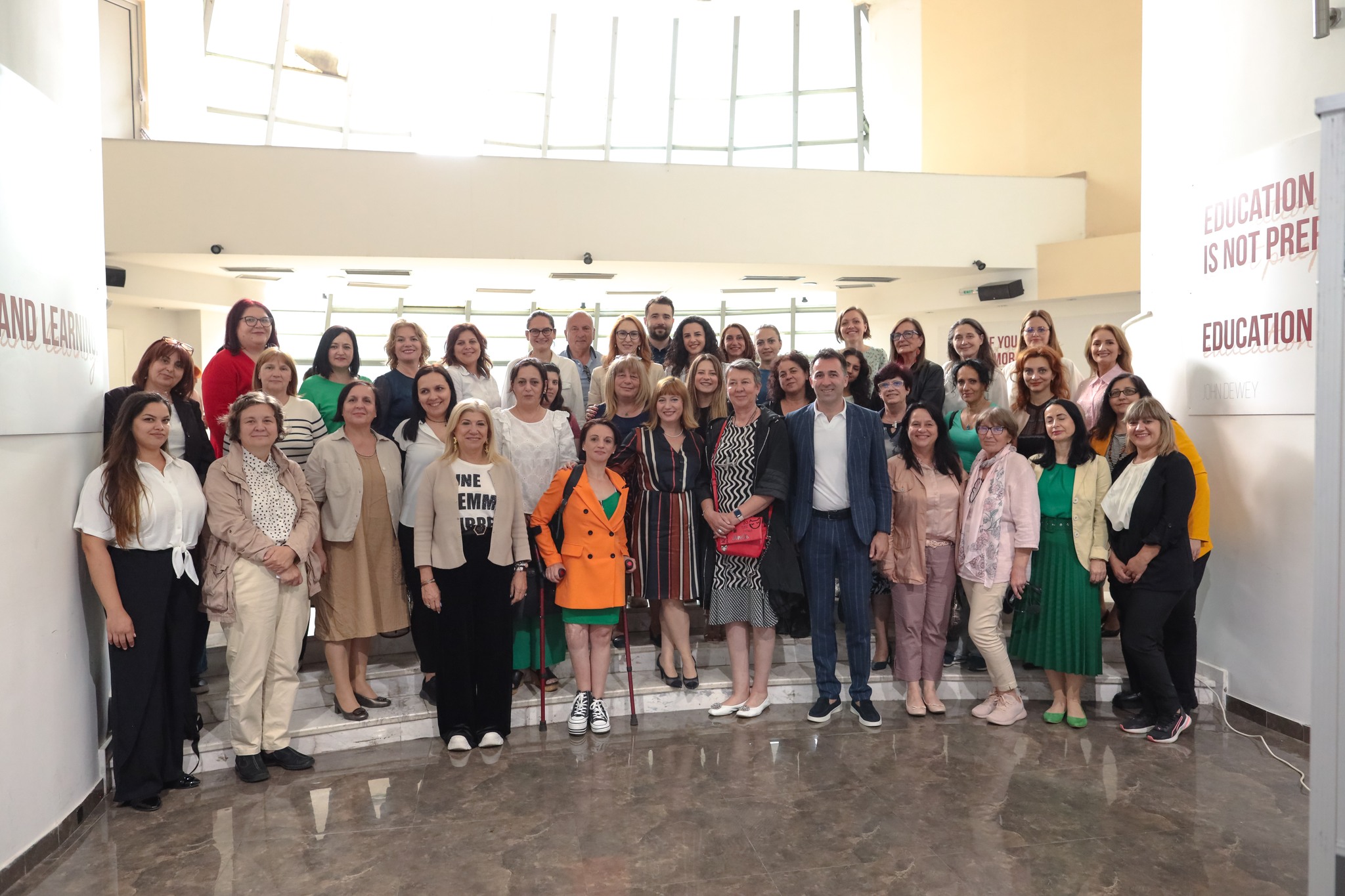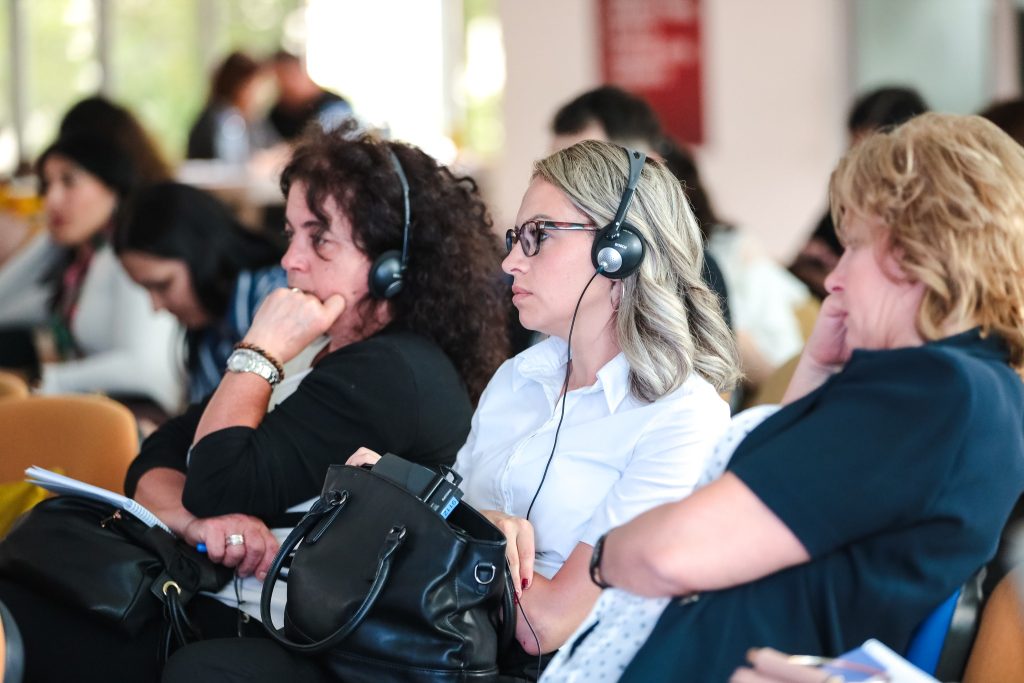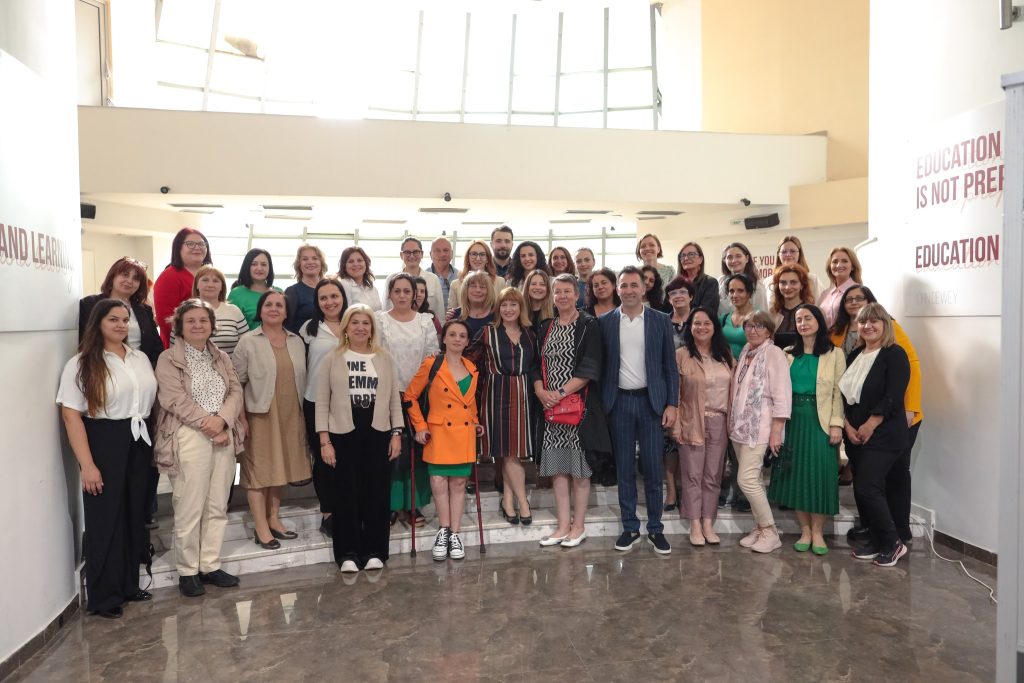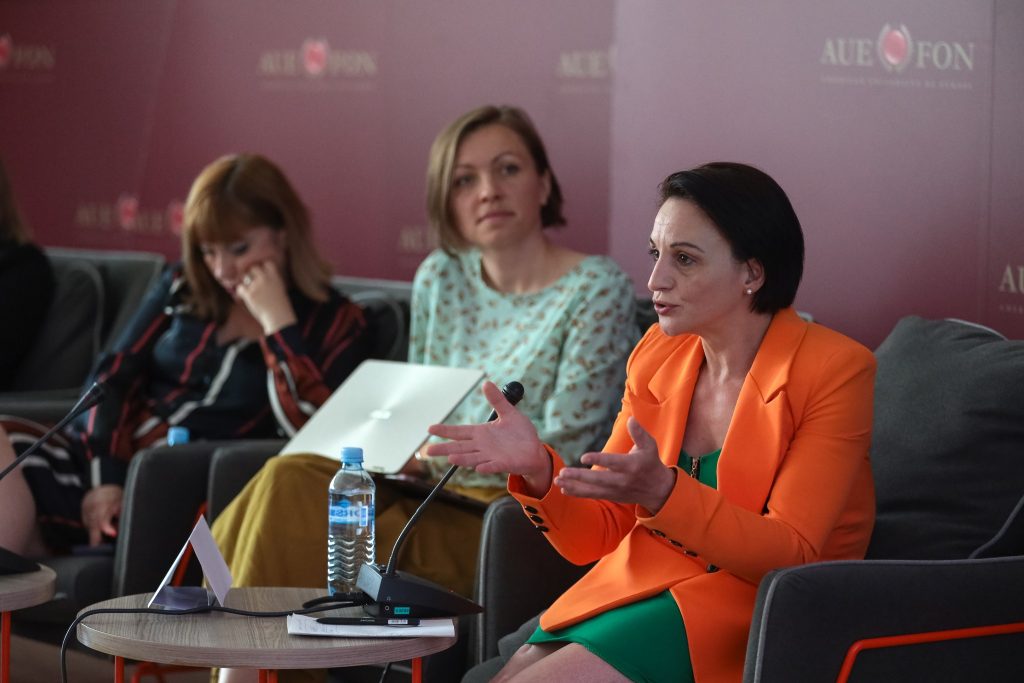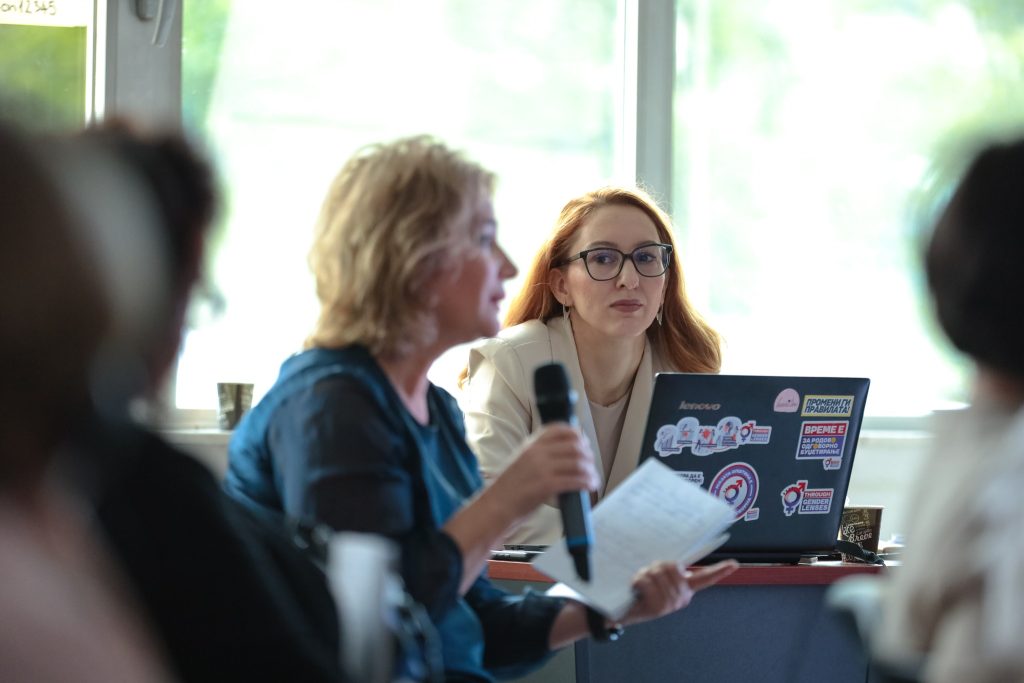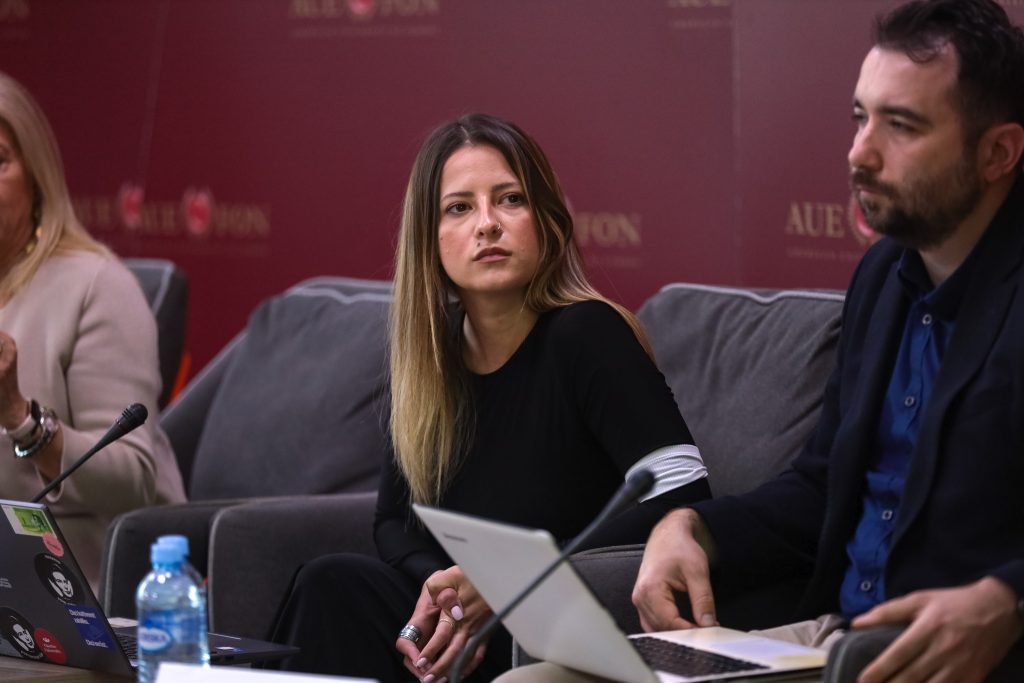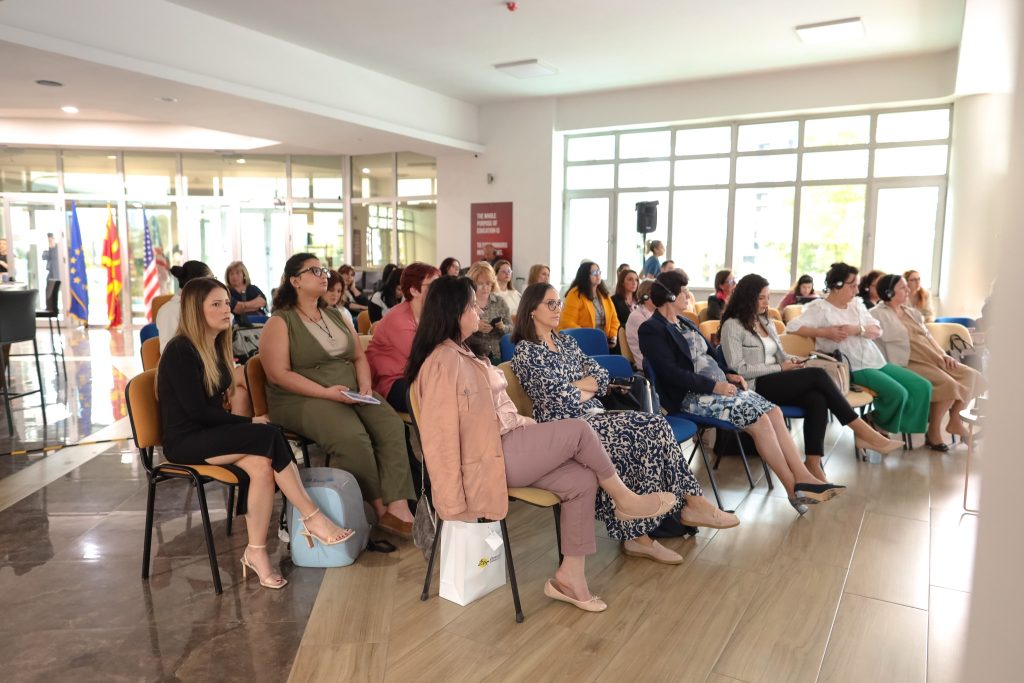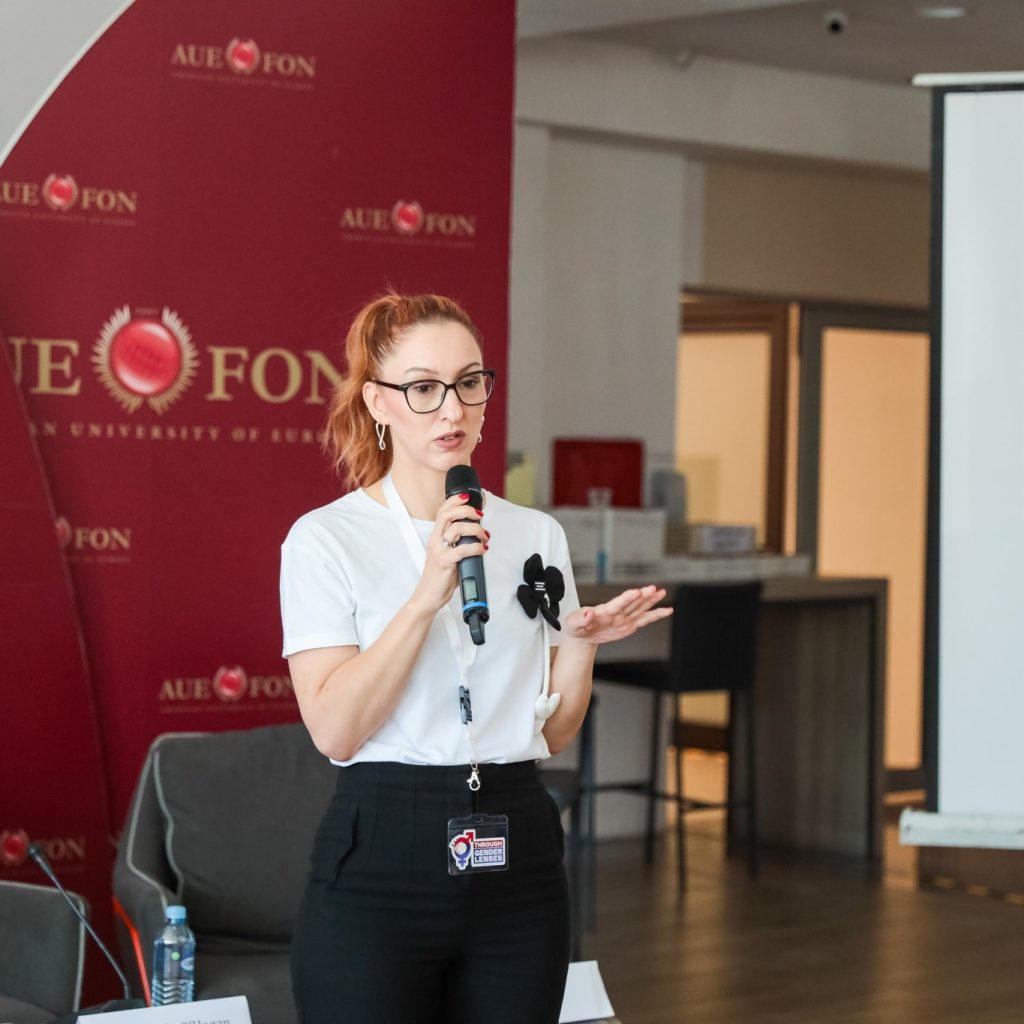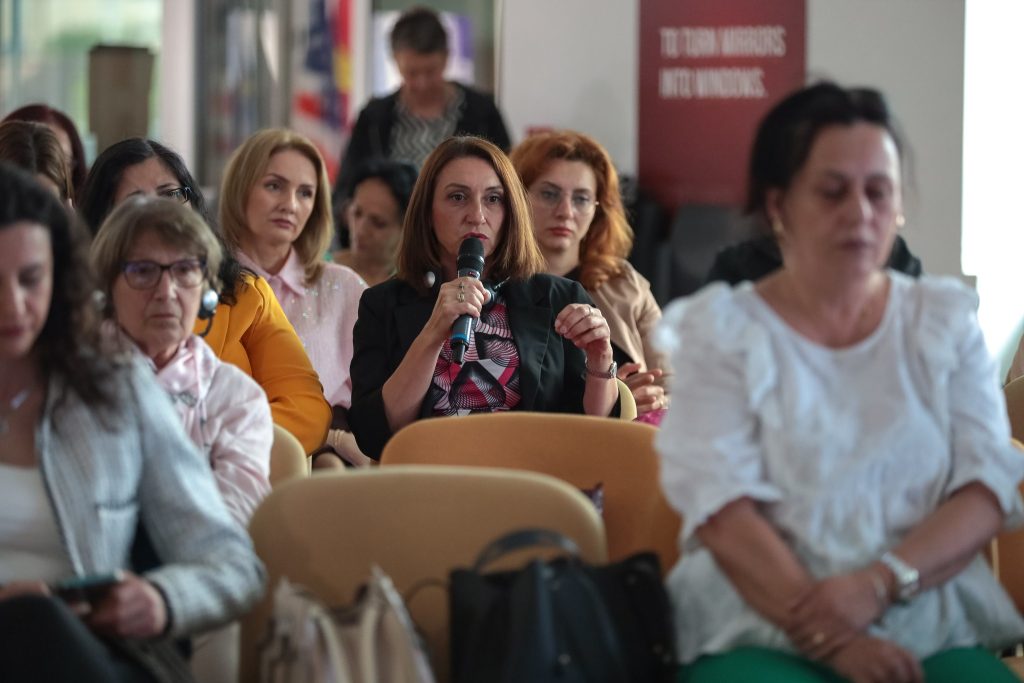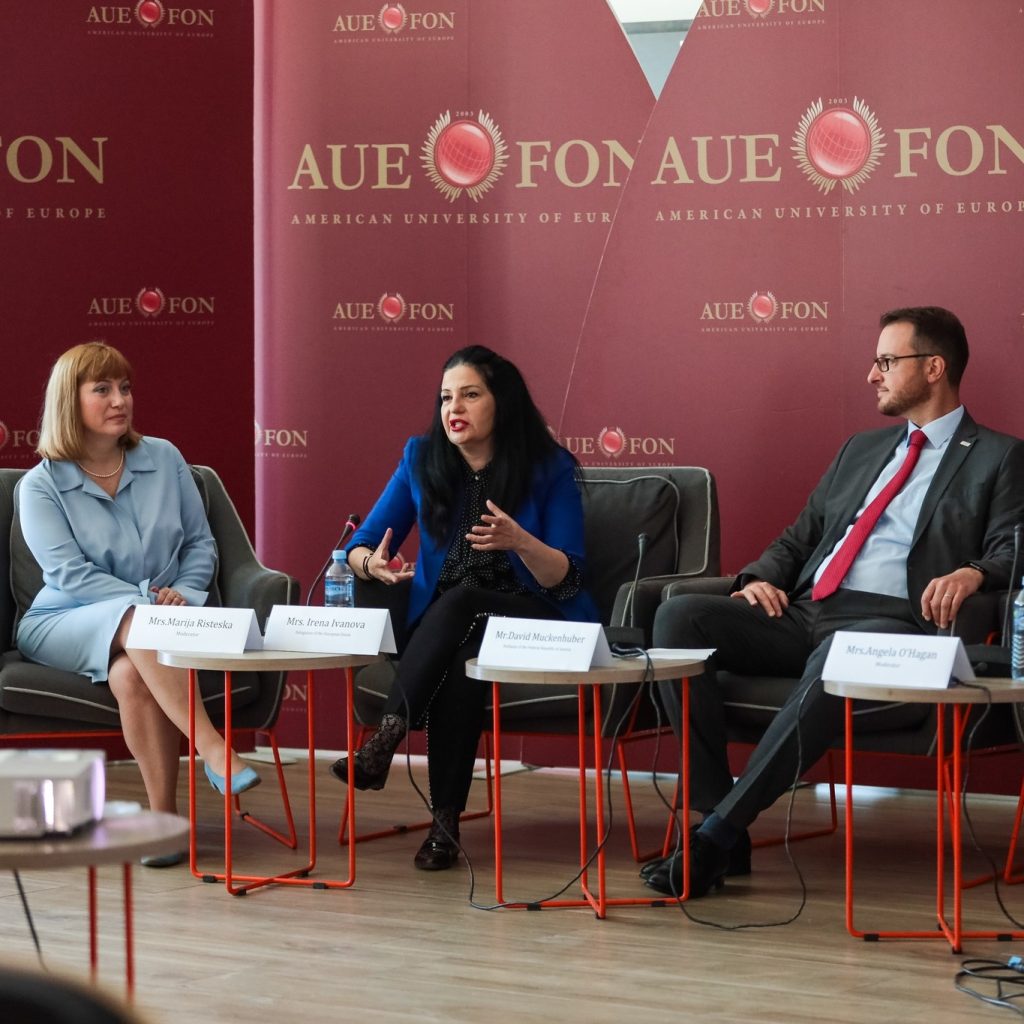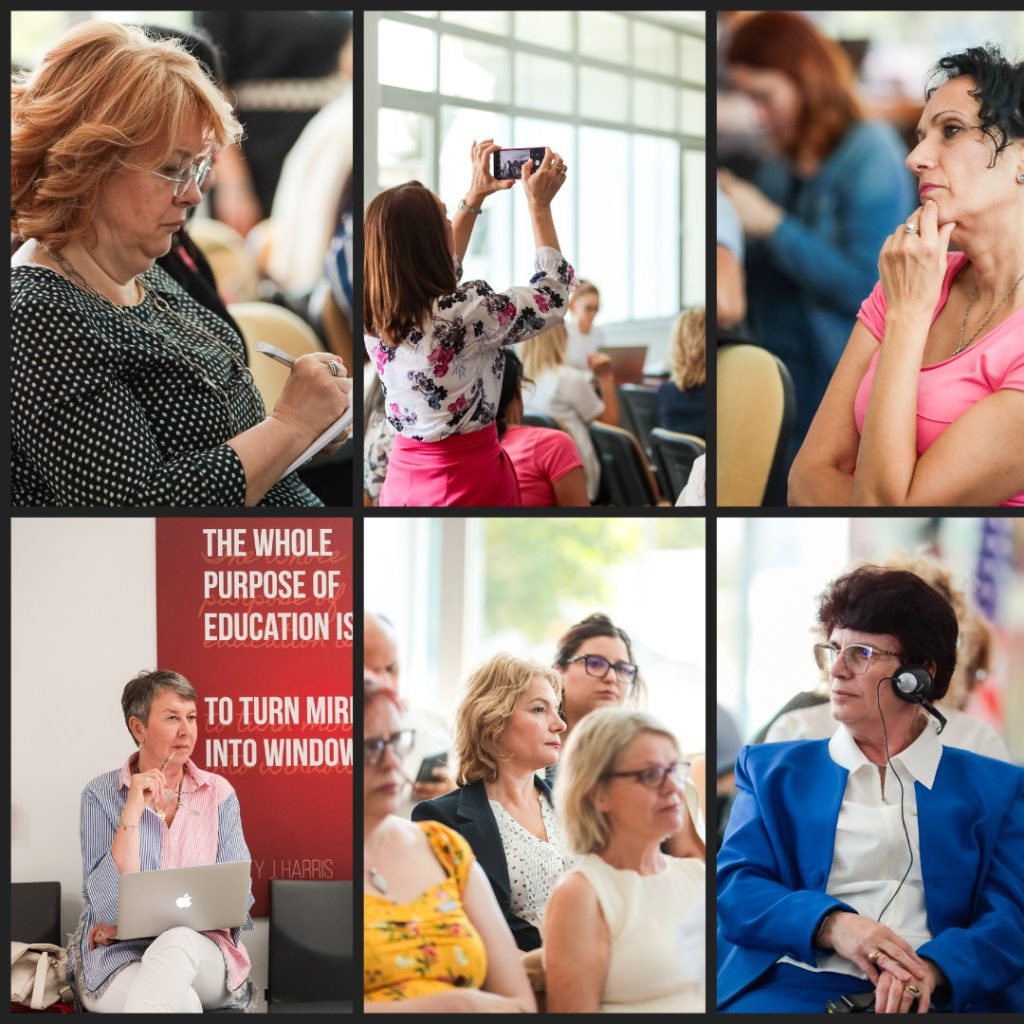A Community of Practice Conference “Gender-Responsive Budgeting: Between Desired and Successful Practices of Redistribution of Public Finances at Local, National, and Regional Levels for the Needs of Women and Men” was organized last week (30-31 May 2024) in Skopje. This conference is the closing event for the project “Through Gender Lenses” implemented by CRPM’s team in North Macedonia and active in 17 municipalities in the country.
The Conference brought together GBWN partners, presenters from the region as well as well-known experts on GRB from all around Europe.
The Conference kicked off with an introduction by our Dr. Marija Risteska and Ms. Irena Ivanova, CSOs and Gender Focal Point from Delegation of the European Union, Skopje who stated that:
“ The work of civil society on research analysis of the impact of policy and budgets on gender of it’s very important. Gender-responsive budgeting is one of the tools for implementing the EU Gender Action Plan, which is the “bible” of designing European development programs. The links between local level practitioners, media and CSOs are important ingredients for transforming the civil society in the Western Balkans.”
Mr. David Muckenhuber, Counsellor, Head of Office, Österreichische Botschaft Skopje/Austrian Embassy Skopje was also part of the opening panel and he stated:
“CSOs work needs to be more connected with the work of the academics and public sector practitioners. This opportunity for synergies creating the community of practice is an excellent instrument that can bring together CSOs, practitioners and academics that use gender responsive budgeting tools.”
The opening was followed by an enlightening keynote speech delivered by Ms. Angela O’Hagen, delving into international development trends on gender-responsive budgeting. It was a thought-provoking session that set the stage for what’s to come.
On the second day of our GRB Community of Practice International Conference we hosted three sessions of amazing scholars and activists.
Here are some of the most relevant statements:
Ljupka Trajanovska: “To bridge the gap between policy and practice and effectively address the specific needs of both men and women, it is essential to start implementing gender-responsive budgeting. This approach ensures that financial planning and resource allocation are conducted with a keen awareness of disparities, allowing local priorities to be aligned with the distinct requirements of all community members.”
Ana Marija Sikiric Simcic from Croatia: “The main challenge lays “inside the system”, because when we train local government officials on the GRB, they mostly participate just because it is part of their job. Additionally, gender equality is not a main priority, there are more important issues and GRB requires a major shift in thinking.”
Daniela Collesi presented a case from Italy that applies analysis of the most important tax policies. The conclusion was that, firstly gender-responsive budget culture should be introduced into the political and social environment, and secondly, using the gender budget lens doesn’t necessarily require more money to be spent instead of not using it.
What does it mean to build infrastructure with a gender perspective? How can we measure the quality of everyday life and well-being? Gloria Alarcón-Garcia, from Spain, not only raised important questions in her presentation, but also presented the data that show how the access to everyday infrastructure affects more women than men.
Similarly, Gulay Gunluk-Senesen elaborated on intertemporal and intergenerational dimensions of public expenditures and their implications for wellbeing of women and girls, illustrated on the examples from Turkey.
The panel concluded with Mersiha Jaksic and Alexandru Gribincea EU’s External Financing emphasizing that for the EU to effectively support GRB initiatives in recipient countries, such as the Western Balkans and the Republic of Moldova, it must lead by example and utilize these practices in its own financial management systems, thus creating opportunity for replicating good practices.

